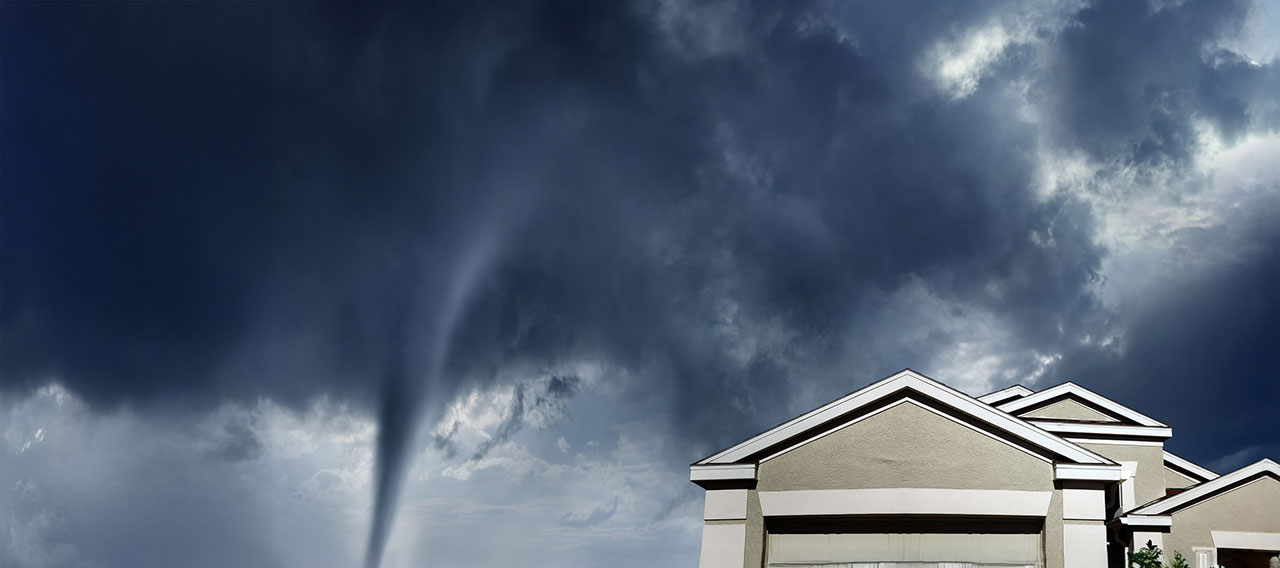Even in the wake of a global pandemic, the worst wildfire and hurricane seasons on record, civil unrest, and a host of other challenges, there are steps we can take to be prepared in uncertain times. Here are some tips to help you face disasters that may come your way with confidence, a plan, and the proper resources.
Disaster Planning Steps
1. Know your risks (and hazards)
5. Establish relationships with service providers
7. Help others
1. Know your risks (and hazards)
To help prepare for the unexpected, start by identifying the common disasters and hazards (weather- and/or human-related) that can occur where you live. Determine whether you live in an earthquake, flood, or wildfire zone, or if your area is prone to tropical storms or winter storms and related power outages. Is there a heightened risk of vandalism or civil unrest? Then, think about all your assets that might be at risk, including homes, autos, valuables, and watercraft.
Helpful Resources:
- Redcross.org: Identifying Common Disasters Across the U.S.
- Ready.gov: Disasters and Emergencies
2. Create a plan
Having a disaster plan can help you recover as quickly as possible. The success of your disaster plan will often depend on the people involved having a clear understanding of their roles and how they communicate with each other. Consider these “what if” scenarios as you develop your plan:
- What if our family is separated at the time of a disaster? Agree on a meeting location and how you will communicate before disaster strikes.
- What is our evacuation route? Consult your local emergency management authority and make sure everyone has access to the information.
- What if our agreed-on meeting place is inaccessible? Decide on a secondary location.
- What if cell towers or the power grid goes down, making it difficult to reach local and out-of-state contacts? Ensure you have multiple ways of reaching your contacts.
The communications aspect of your plan may prove to be the most critical. Consider how your communications might differ in the event of a natural disaster as compared to a human-made disaster (e.g., civil unrest, terrorism). Your disaster communication plan should outline who will handle the communications and who should be contacted first in the event of a disaster; it should include a family phone tree and distribution lists, and a plan for how you will communicate and initiate family notification.
Helpful Resources:
- Ready.gov: Make a Plan
- Redcross.org: Making a Disaster Plan
3. Collect supplies
Don’t wait until disaster happens to try and build your go-bag of supplies. If something does happen, you’ll be glad you have everything you need at hand. Just think about how difficult it was to get cleaning supplies at the onset of the pandemic. The following is a list of some of recommended supplies that will help you and your loved ones in almost any emergency or disaster:
- First-aid kit
- Cash
- Prescription medications for at least two to three weeks
- Water and non-perishable foods
- Extra face masks, gloves, and hand sanitizer
- All-weather clothing
- Warm blankets
- Pet food
- Paper copies of critical documents
- Portable chargers for all your devices
- Crank or emergency radio with extra batteries
- Extra gasoline for your generator
- If you are at high risk of a disaster, such as a wildfire starting near your home, consider putting a go-bag of supplies in your car ahead of time, so you’re ready to leave at a moment’s notice.
Helpful Resources:
- Chubb.com: Emergency Evacuation Packing List
4. Reinforce your home
With more time being spent at home, many families are renovating and enhancing their homes. Why not take the opportunity to reinforce your property to help protect it against natural and human-related disasters? Here are some tips to consider:
- Install a fireproof safe that is bolted to the ground on the lowest floor in your home to house your jewelry and other small valuables.
- Purchase and install a whole-house backup generator.
- When building or remodeling in hurricane-prone areas, build walls and floors from concrete-filled forms made from polystyrene and recycled plastic that can withstand 300+ mph winds and heavy rain. If you are doing new construction or even replacing a roof, consider ultra-strong connectors on your roof and install high-security doors and windows.
- In areas where severe storms and tornadoes are common, build a storm shelter with a bathroom and accommodations for sleeping and preparing food.
- In wildfire areas, install fireproof roofing materials and repair any roof cracks. It’s also a good idea to contact a licensed contractor to retrofit all vents with flame- and ember-resistive models.
By making even small enhancements to your property, you can help ensure that, whatever the impacts severe weather or other disasters may bring, you’ll be better prepared.
5. Establish relationships with service providers
It’s also important to ensure you have relationships with key service providers and contractors so they will respond to you quickly in an emergency. For example, if you are an art or wine collector and you haven’t already, consider creating a list that includes a collection manager, fine art packers/shippers, fine art warehouses, art conservators, wine evacuation vendors, and your insurance broker/agent. Find the best resources for your needs.
If you need help locating a reputable service provider, Chubb has a network of thousands of pre-qualified professionals who are ready to assist. Simply log on to the Client Portal (log-in required) and select Benefits and Offers to get started. You can also access our network right from the Chubb Mobile app (App Store | Google Play)
6. Protect your valuables
Valuables such as artwork and other collectibles may require additional steps.
- Consider what you’ll need in order to move your artwork in the event of a long-range power outage with no air conditioning. As part of your emergency evacuation kit, you’ll want to keep a supply of gloves (powder-free nitrile for most artwork, and work gloves for heavy items). You may also want to store flashlights, batteries, portable generators, fans, dehumidifiers, and chamois cloths.
- Put together a priority list in case artwork needs to be relocated—it may be based on sentimental, financial, or historic value. Be sure to include any special security or packing/handling requirements. If you have time and can safely do so before a major weather event or other disaster, move temperature-sensitive items like fine art and wine to an interior room, away from windows and not directly under roofing. Contact fine art/wine shippers with temperature-controlled trucks that can temporarily relocate artwork/wine to a climate-controlled fine art/wine storage facility with a backup generator and emergency preparedness plan.
7. Help others
If you and your family are safe and ready for an approaching storm or other potential disaster, think about how you can help your neighbors, especially those who are elderly, disabled, or may not have nearby loved ones to assist them. One simple way to help is to use social media to encourage others to create a disaster plan. After a disaster, you can donate your time to help with cleanup, or you can donate blood, goods, or money. You can also work formally with your community disaster planners to provide local-level assistance. Both the Red Cross and FEMA are excellent places to get started.
Protecting Your Art and Other Valuables from Severe Storms
Protecting Your Art and Other Valuables from Earthquake Damage
Protecting Your Art and Other Valuables from Wildfire Damage
6 Tips for Selecting the Right Art Storage Facility
5 Ways to Make Your Home More Resistant to Wildfire
Insights and expertise








This document is advisory in nature and is offered as a resource to be used together with your professional insurance advisors in maintaining a loss prevention program. It is an overview only, and is not intended as a substitute for consultation with your insurance broker, or for legal, engineering or other professional advice.
Chubb is the marketing name used to refer to subsidiaries of Chubb Limited providing insurance and related services. For a list of these subsidiaries, please visit our website at www.chubb.com. Insurance provided by ACE American Insurance Company and its U.S. based Chubb underwriting company affiliates. All products may not be available in all states. This communication contains product summaries only. Coverage is subject to the language of the policies as actually issued. Surplus lines insurance sold only through licensed surplus lines producers. Chubb, 202 Hall's Mill Road, Whitehouse Station, NJ 08889-1600.










